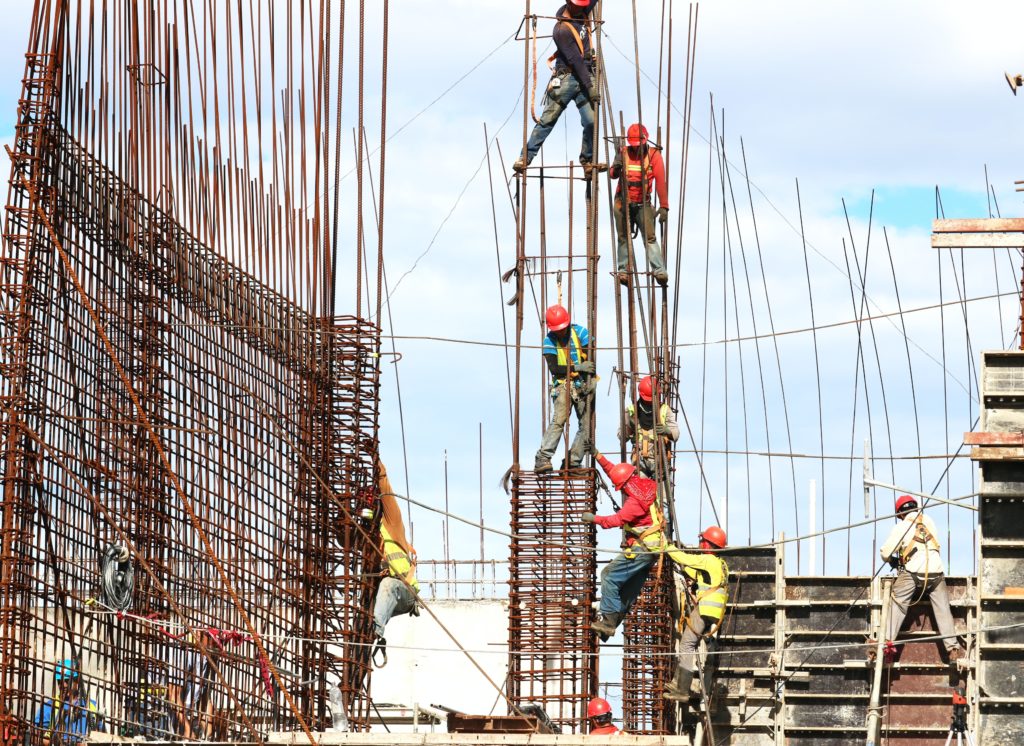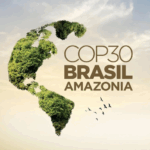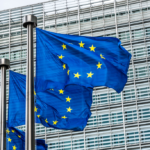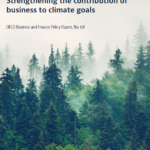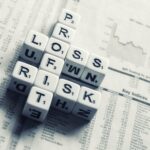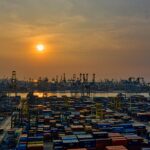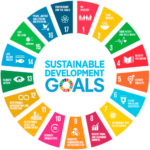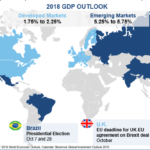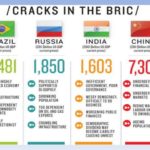For the past 10 years, companies have been applying the UN Guiding Principles on Business and Human Rights. Echoing multiple national regulatory initiatives – notably in California, France, UK, the Netherlands, or Germany – the European Commission announced it would implement a directive on mandatory Human Rights due diligence by 2021. What has been the business feedback to date? Can a European directive enforce respect for Human Rights across supply chains, beyond what is already in place? How might the Covid-19 pandemic impact its application?
Business & Human Rights Both Call For a Meaningful Enforcement Mechanism
Human Rights due diligence has been gaining momentum. Such requirements are increasingly supported by domestic legislations and growing internal alignment across relevant corporate functions. More and more, Human Rights precondition access to capital, whereupon investors evaluate the operational benefits of offering corresponding premiums to strategic suppliers.
What has been lacking, however, has been a broad, legal directive encompassing meaningful enforcement mechanisms. The EU commissioner may have addressed this gap, by announcing companies would not only be required to conduct due diligence across their businesses and supply chains, but also include enforcement and civil liability provisions.
Human Rights Diligence to Date
We have worked on 80+ corporate due diligence across industries. The UN Guiding Principles on Business and Human Rights clearly have helped align stakeholder expectations on these sensitive topics. As a continuous process of identifying and addressing a company’s Human Rights impacts throughout its operations, Human Rights due diligence is generally better understood. The UN Guiding Principles outline the following four core principles:
- Identifying actual, potential and perceived risks of negative human rights impacts on stakeholders, including the scale, scope, remendability and likelihood of those impacts
- Taking steps to prevent and mitigate those impacts
- Tracking the effectiveness of such steps
- Communicating commitments and activities externally, including to those groups that may be impacted
Thanks to a broad application across Fortune 500 companies, financial institutions and beyond, Human Rights due diligence has generated the following positive impacts so far:
- Greater corporate awareness on Human Rights-related issues. For example, the Human Rights lens proves helpful in furthering Opex and Capex discussions. Proactive Human Rights risk mitigation in fact generates savings – or, at the very least, decreases unnecessary costs. A recent study targeting the extractive sector determined the costs of shutting down a major mining project are roughly $20 million per week. It went on to highlight community-related delays had generated $750 million in project costs, not to mention the potentially lasting impacts of Human Rights violations on individuals and communities
- Human Rights allegations have opened onto high-profile transnational lawsuits in home jurisdictions including the U.S., Canada, the U.K. and France. This has encouraged Boards of Directors and C-Suites to seriously examine what could be applicable to their own business – stretching way beyond basic requirements pertaining to working conditions or child labor. French climate activists have successfully sent energy major Total to court for on the premise its climate strategy and Human Rights due diligence default on their Corporate Duty of Care. The news sent the top management in any CAC40 company in a flurry to reassess their own operations. Of these, approximately 50% came to agree Human Rights due diligence should rightly include climate impacts
- Human Rights performance is also gaining traction in relations to lending and financing. The Financial Crimes Enforcement Network indeed released a detailed report for financial institutions to detect and report any suspicious financial activity related to human trafficking. Industry efforts were further stepped up after the Australian government’s financial intelligence agency charged Westpac bank with facilitating transactions enabling child exploitation in the Philippines – which contributed to a massive stock drop and potentially USD1 billion in fines as well as civil and criminal penalties
Why Mandatory Diligence is Needed?
Recently, the U.K. government — which spends roughly £50 billion on goods and services — issued a Modern Slavery Act Statement introducing “strong incentives” for suppliers to improve their Human Rights performance. This resonated as a clear warning to suppliers, now wary of exclusion from public contracts should their Human Rights performance fall short.
Do we have the methodology to make sure we get this right? Is there a risk using restrictive criteria might generate inequal access to public markets? Is “Human Rights performance” measured through a check-the-box approach focused on risk mapping and resources, but unable to demonstrate impact and actual risk mitigation? Is performance alternatively based on actual impacts, in alignment with the UN Guiding Principles? How then do we ensure impact measurement is not open for interpretation?
Such interrogations are reminiscent of the climate discussions that marred the Copenhagen COP15 and fueled the Paris COP21 in contrast. Between the two, business, investors and other stakeholders have aligned to broadly support regulation and mandatory climate strategies for business so as to level the playing field… somewhat. As climate impacts everyone, related rules should apply to all. Now the Human Rights journey would appear to have reached similar maturity:
- Firstly, because legally-binding instruments regulating business and Human Rights are gaining in breadth and clarity
- Mandatory due diligence is already in place, both in France and in the Netherlands. They have been formally proposed in Norway, Austria, Denmark and Switzerland. Leaders in Belgium, Finland, Germany, Luxembourg and elsewhere have likewise pledged their support
- Lastly, a growing number of corporations, business associations and investors have voiced their support of mandatory Human Rights diligence laws
What to Expect from a EU Mandating Human Rights Due Diligence by 2021
France’s Duty of Vigilance Law is a sound starting point
The EU published a study on regulatory options for EU due diligence legislation in February 2020. Despite pertinent efforts to align due diligence across the value chain, the proposed legislative options exclusively focus on supply chains, hinting at what will likely remain the primary focus.
Based on the information Ksapa has triangulated with affiliates and experts in the field, the following specifications are likely to frame the mandatory due diligence directive included in the EU Justice Commission’s 2021 workplan:
- Quite aligned with France’s Duty of Vigilance, the legislative goal will be to require companies take affirmative steps to identify, prevent, mitigate and account for Human Rights risks and impacts, inclusive of their environmental ramifications
- The EU directive would apply to all corporate activities and their subsidiaries and extend across their supply chains
- The EU directive would require due diligence into potential as well as actual negative Human Rights impacts, so that businesses would have to publicly report on their results, mitigative efforts and their impact on the ground
- One step beyond France’s Duty of Vigilance, the EU directive would include strong enforcement mechanisms and access to remedy for victims through civil liability, based on the assumption “a regulation without sanctions is not a regulation”
The initiative is expected to open onto a “public consultation” in the second half of 2020 so that a proposal may be released in the first quarter of 2021. It is encouraging to note the process falls spot in the middle of a German presidency of the European Commission – given their government has already expressed support for the law.
What Will it Take for this Initiative to Meaningfully Advance Human Rights?
Numerous questions ultimately remain open for an EU-wide directive to address, which include:
- Clarity on the required standard of “diligence”
- Further resolution on the jurisdictional reach, to cover companies engaging in commercial activities in the EU but headquartered abroad. The text will also have to address whether and how this directive might influence EU trade and members’ bilateral investment treaties and the related access to investor-state dispute settlements (ISDS)
- More visibility on expected enforcement mechanisms
- We expect the International Bill of Rights to rule in terms of the (extended) scope of Human Rights covered, as it encourages corporations and investors to move beyond labor conditions and child labor. We would nevertheless expect further clarity on the environmental scope included in the EU Directive. In our Towards 2030 report released in early 2020, Ksapa clearly stood for the inclusion of climate, water and biodiversity
- Observable alignment between this directive’s expectations related to trade and bilateral relations and the broader EU diplomacy. Corporations and investors are expected to enforce Human Rights and may leverage influence accordingly, yet numerous challenges they encounter in their subsidiaries and supply chain operations are contextually-dependent. In other terms, the more trade and diplomacy encourage the respect of Human Rights and bolster efficiencies and confidence for EU directive-compliant trading, the better for business partners around the world
Everything is interconnected. Depending on answers to the above, integrated Human Rights approaches may be carried out by leveraging efficiencies in risk areas, as they are often contributing factors in other matters.
Conclusion: What About Covid-19 Impacts?
The world is obviously entering a massive recession. Policy-makers and business leaders will likely question whether more Human Rights regulation is pertinent as G20 countries suspend labor laws. Our response is equally obvious. Inequalities and anger are on the rise everywhere. Cutting corners on Human Rights is not only conducive to socially explosive environments, it also directly contravene to businesses’ ability to make essential projections. More, not less, likeminded efforts are needed, in the EU and beyond, to lend societies a fighting chance to recover.
Président et Cofondateur. Auteur de différents ouvrages sur les questions de RSE et développement durable. Expert international reconnu, Farid Baddache travaille à l’intégration des questions de droits de l’Homme et de climat comme leviers de résilience et de compétitivité des entreprises. Restez connectés avec Farid Baddache sur Twitter @Fbaddache.

